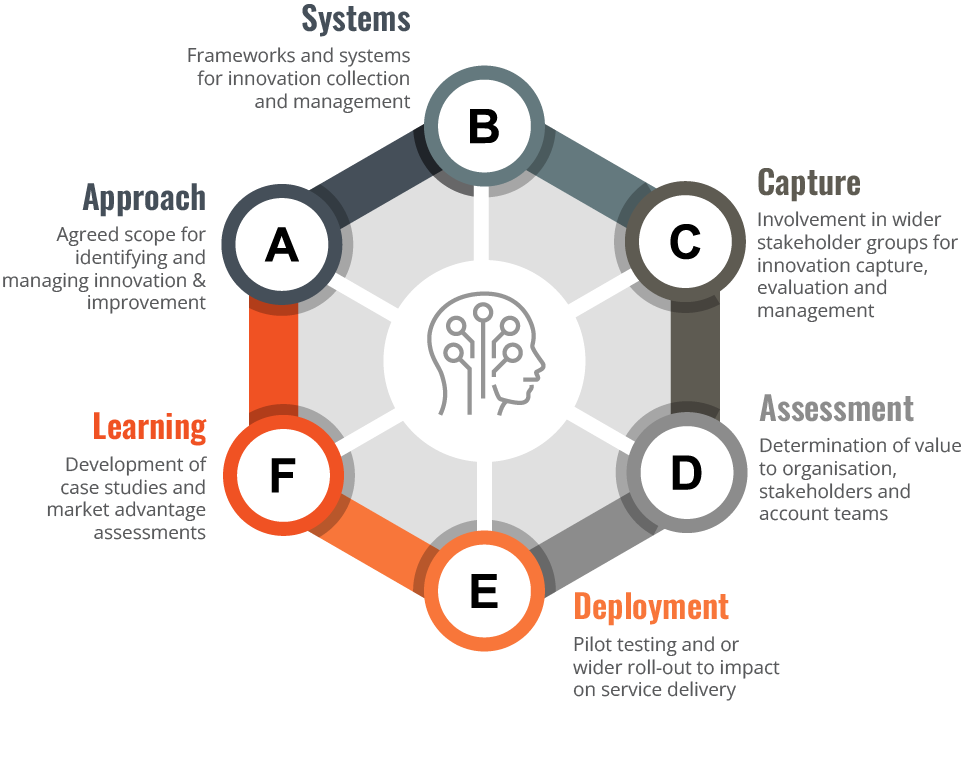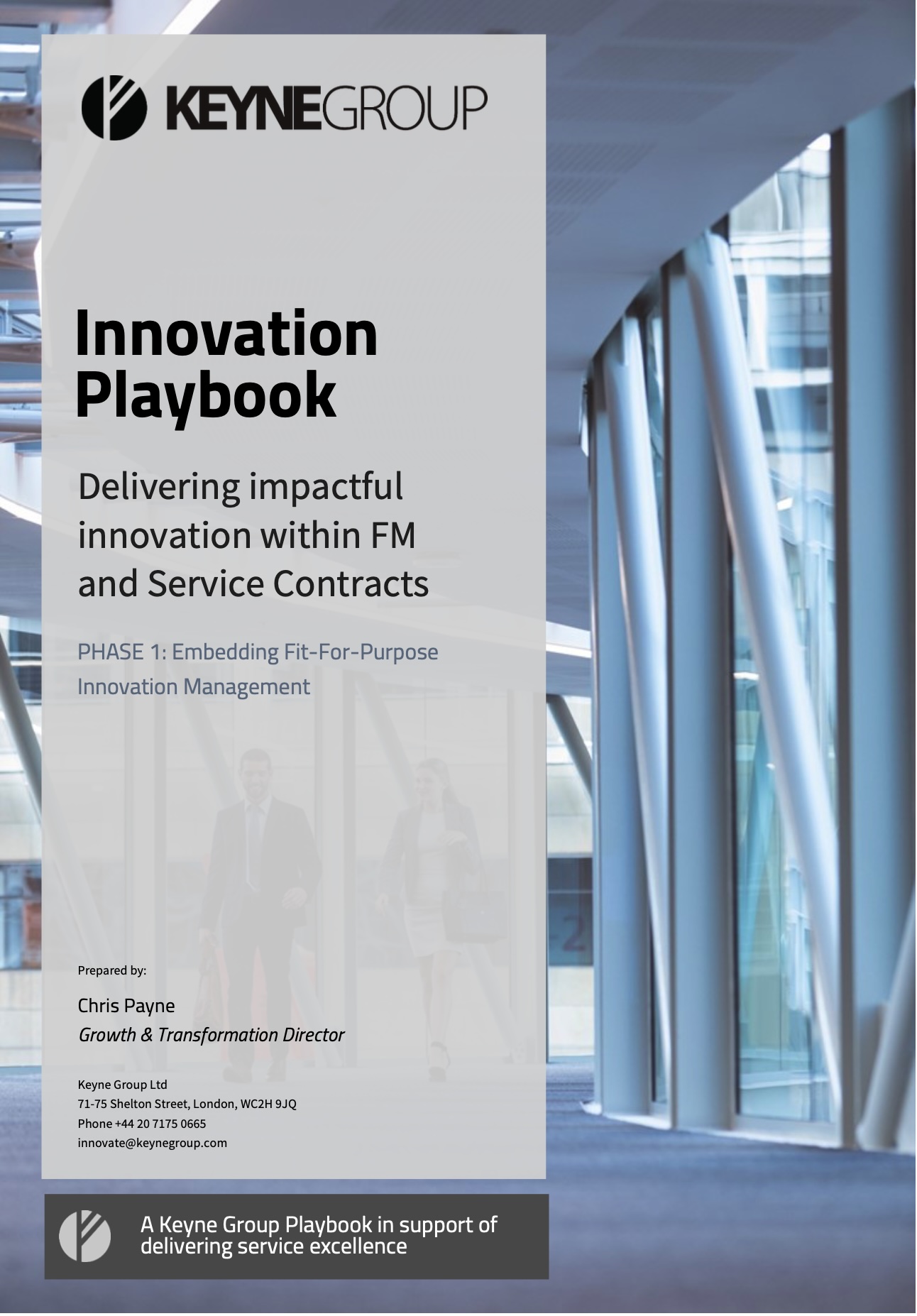Refresh Your Approach to Innovation and Improvement Management
It is widely recognised that organisations must adapt over time to remain relevant in their marketplace. The same can be said for service delivery contracts, where parties to the arrangement must work together to find innovations and improvements that help the service to remain relevant, and the Buyer to adapt their requirements over time to meet the external market pressures they face. With many contract durations extending to five years and beyond, it is imperative that the service model and underlying specifications for delivery allow for adjustment to accomodate new ways of working, new technologies, and changes to the external economic environment.
Embed Innovation and Improvement Initiatives
Operational improvement and excellence initiatives rely on iterations of current delivery models to deliver better performance. Through establishing a baseline of outputs and productivity, improvement frameworks can be applied to determine a focus for enhancements and to ultimately evolve the way that services are delivered. The embedment of improvement toolkits and frameworks help to reduce error, waste, and excessive cost and should be done as a matter-of-course on all dervice delivery contracts. In comparison, innovation focuses not only on incremental improvements, but also on finding entirely new ways to deliver services or to add value to customers. Many service providers can typically demonstrate continuous improvement activities, but it becomes harder to quantify and identify sustained innovation activities. Yet there are clear advantages for the identification and assessment of both.
Effective improvement and innovation activities can deliver:
- Higher customer retention rates
- Elevated market profile
- Lower direct costs
- Increased margins
- The ability to offer lower prices
- Improved customer satisfaction
- Increased accuracy & KPI performance
- Greater operational agility
- Better use of assets
- Stronger customer relationships
- Less waste
- Competitive differentiation
- Simpler business processes
- Improvements to culture and workforce behaviours
Underpinning the consistent capture and advancement of improvements and innovations is a framework that makes it easy to implement, monitor, and gain outputs from ideas, proposals and suggestions from both within and outside of your organisation.
At the Keyne Group, we've developed a holistic framework and supporting toolkits called the Keyne Group Innovation Framework. The framework facilitates the collection and evolution of improvements and innovations and has been designed to help our clients to demonstrate value to their customers throughout the contract lifecycle. The framework aligns to ISO44001:2017 (Collaborative Business Relationships) and ISO56000:2020 (Innovation Management) and serves as a mechanism to provide evidence for bidding opportunities as well as reinforcing operational capability and the continuing pursuit of collaboration and positive outputs. If you would like to find out more, then get in touch to arrange a brief chat with one of our team to see how we can help.

The Keyne Group Innovation Framework - a platform for improvement and innovation capture
